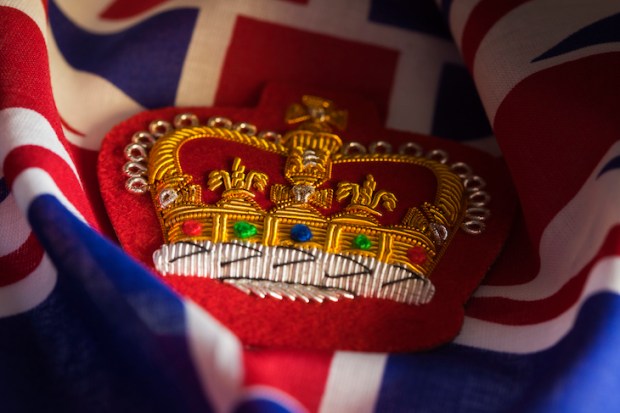Bitcoins have been in the news, after a story about an unfortunate fellow who jettisoned his computer’s hard drive that contained (apparently) the code he needed to access his stash of this electronic currency — its value more than £4 million. I don’t even pretend to have an opinion on bitcoins. I only just, and most imperfectly, understand what this electronically traded currency is and why it appeals to people.
But it has got me thinking. A bitcoin is a single currency, a global currency, a currency beyond the reach or control of national governments around the world. In theory (unless governments try to ban the bitcoin) it would be politician-proof.
So my question is this: what would a Eurosceptic anti-single-currency-wallah make of bitcoins, or any transnational or world currency? What would be the ideologically correct response of the sovereignty-conscious right to the emergence of tradeable units of value whose price was fixed entirely by international supply and demand?
Because, you see, it’s my belief that British conservatives’ detestation of the European single currency, though usually couched in strictly economic terms, is actually rooted in a detestation of Europe, rather than the theoretical concept of a single currency. Would they feel the same about Britain’s adopting (say) the American greenback?
Think about it. The idea of a world currency whose value was determined entirely by demand, whose supply was decided by an authority other than national governments, and whose interest rates were determined entirely by what lenders were prepared to demand and borrowers offer, has a kind of right-wing beauty about it, doesn’t it? Nobody could fiddle with it, nobody could manipulate it, prices around the globe would tend to converge and stabilise so that true comparisons could be made of costs and productivity. The whole concept would seem to me to tend towards an increase in honesty, transparency and clarity, and do so in the merciless way that should appeal to economic liberals, of whom I suppose I’m one.
I’m aware that I’m probably committing all kinds of howlers and overlooking all kinds of key considerations, but as I’m in thus far, I’ll continue.
Like all good Tories, I’m a Eurosceptical critic of the European single currency, and the idea that the UK should ever join it. But I don’t find that my reasoning on the subject bears too much scrutiny. What above all disturbs me is the suspicion not that the Eurosceptics’ case against a single currency is weak, but that it is too strong.
The case is centred, I suppose, upon the objections to a ‘one size fits all’ currency, and to some extent therefore economic policy, when in some countries (for instance) higher interest rates might be needed to dampen things down, while in others the stimulus of lower interest rates might be suitable. ‘Fair enough,’ I muse, ‘but what possible reason is there to think that the boundaries of these zones and regions, in which one macroeconomic prescription rather than the other would be best, are likely to be co-terminous with national frontiers?’
Doesn’t London and the south-east need damping down at present, and Liverpool, Wales or the north-east need stimulus? Why have a ‘one size fits all’ currency regime that does not distinguish between prosperous Catalonia and struggling Andalucía? As regards the appropriate monetary policy, doesn’t northern Italy have more in common with northern France than with (say) Sicily?
Or should we focus on even smaller economic zones? There’s almost no real unemployment in my old constituency of Derbyshire Dales; property prices are if anything too buoyant; commercial and industrial land is in short supply; and no serious stimulus is called for. Not so Dennis Skinner’s Derbyshire constituency of Bolsover, which almost adjoins Derbyshire Dales, but where the death of the coal and the (nearby) steel industries have hit a large swath of the East Midlands. Should we have different currencies for Bolsover and Derbyshire Dales?
Then comes the related question of the valuation of currencies. It is said that Britain can benefit from being able to devalue sterling whereas poor old Spain is stuck with the euro, whose high value has been choking Spanish exports. But isn’t it cheating to use interest rates and monetary policy in order to devalue your currency and gain a temporary competitive advantage for your exports, by making them cheaper? What if Spain did return to the peseta, Greece to the drachma, etc, and all these countries were enabled to cut the price of their exports relative to the price of ours? How is a ‘fair’ value for a national currency to be determined so that the clichéd ‘level playing field’ with its competitors can be maintained?
It appears to me that a common currency, or at least a common yardstick of value globally, is the only antidote to cheating by national politicians who seek advantages for their own economic zone, and manipulate their currencies accordingly.
Well, you can see where this going: towards a gold standard. But we used to have that. Doubtless there are excellent reasons why the gold standard didn’t work and we cannot return to it. I simply note that the psychological appeal of the gold standard is surely to the right, who don’t trust governments, while the appeal of national currencies manipulable by politicians is surely stronger on the left.
But what was the gold standard but a sort of single currency? And why was it generally the right who favoured keeping it, and some on the right who have continued to favour its return? If the argument for a single European currency comes from the same stable as the argument for a world currency like gold, why do the right switch sides only when the word ‘Europe’ is attached to the idea?
Enough economic blunders there, I suspect, to last me a whole year. So that’s my quota for 2013 exhausted. But seriously, I’d like to know. Until then, let’s agree at least on frankincense and myrrh.
Got something to add? Join the discussion and comment below.
Get 10 issues for just $10
Subscribe to The Spectator Australia today for the next 10 magazine issues, plus full online access, for just $10.















Comments
Don't miss out
Join the conversation with other Spectator Australia readers. Subscribe to leave a comment.
SUBSCRIBEAlready a subscriber? Log in